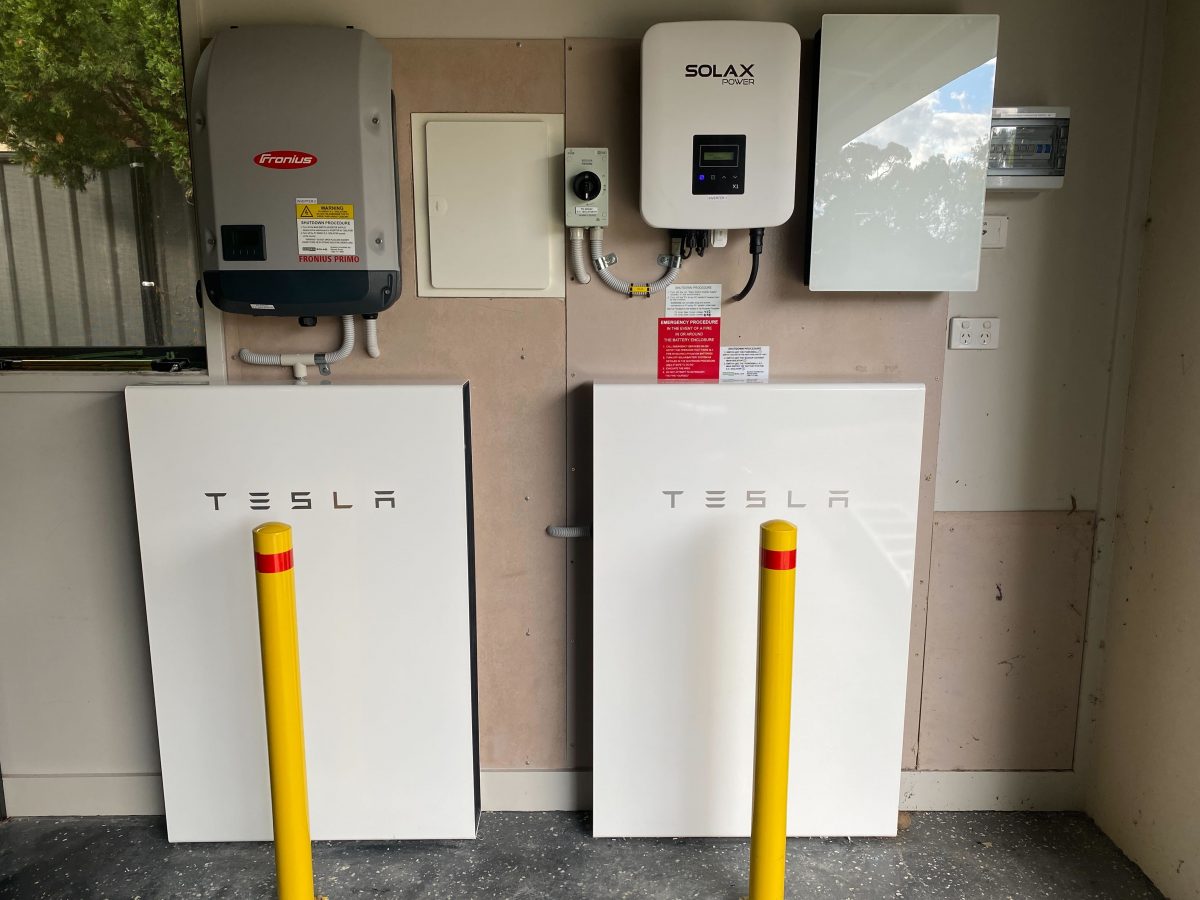
Demand for solar batteries is on the rise in Canberra. Photo: Stephen Ning.
After years of waiting for solar battery systems to become more cost effective, many Canberra families have decided the time is right.
Canberra solar company Mondiaux Solar has seen a significant increase in demand for battery storage systems. About 80 per cent of new residential solar customers now also install batteries.
Mondiaux residential sales manager Garry Nagra says families are making the choice to become self-sufficient to avoid the rising cost of electricity.
“Solar batteries are a game changer,” he says.
By installing a battery, the excess energy produced by the sun can be stored and used by families during peak times, reducing their dependency on the grid and slashing their power bills.
“Going solar was always a better choice than depending on the grid and, with the electricity retailers now unable to meet the energy demand during peak-hour, increasing their price is the only way to discourage people from using energy during peak load times,” Garry says.
“Now is the right time to install a battery to beat the expected price hikes.”
Installing a solar system with battery storage is the best way to increase self-consumption of energy 24 hours a day.
If a house has solar, without a battery, it self-consumes an average 20 to 30 per cent of the total energy produced in a day, with the rest exported back to the grid.
“Without battery storage, people are dependent on the energy retailer’s feed-in tariff to maximise their benefit, but unfortunately the tariff is very low,” Garry says.
READ ALSO: Healthy sponsorships a gamechanger for junior sporting clubs
“They also have to pay for the energy they use after the sun goes down.
“Rather than selling their excess energy back to the grid, it’s more beneficial for people to store it in a battery for use during peak times.”
Garry’s says think of solar as a grocery store and electricity retailers as restaurants – why eat out every day when you can cook your own food?
An increase in the amount of time people are now spending working from home has also led to a rise in household electricity consumption.
With a solar system, people can reduce their electricity bills and their dependency on the grid by self-consuming the electricity during the day to run dishwashers, clothes dryers and washing machines. By adding a battery to an existing solar system, families can save even more in the long run.
“If a household has solar and battery installed, they can reduce their dependence on the grid by being self-sufficient and the electricity price increase won’t have a significant effect on the expenditure,” Garry says.
“Now, the average kilowatt price is 25 cents when you buy energy from the grid. But when you feed it back to the grid, you only get eight cents. It means in order to offset your current usage, you need to export three times the energy you consume daily.
“Storing energy in a battery allows you to use the energy at peak rates and, if the price of electricity goes up every year, you save more every year with a battery.”
Batteries have come a long way in recent years, with lithium-ion batteries gradually replacing lead-acid batteries in energy storage due to their affordability, higher efficiency and longer lifespan.
Lithium-iron phosphate (LFP) batteries have become one of the most popular battery materials for the Home Energy Storage System (HESS).
In addition to cell materials, the safety, performance and adaptability of batteries have also been gradually improved.
Once considered a luxury item, batteries are now more affordable as manufacturers, including Alpha ESS, Sungrow and Huawei, take on the big guns of Tesla and LG.
“Premium brands will always have a higher price, so people should look at the quality of the product rather than a brand,” Garry says.
Canberra residents can take advantage of the NextGen battery rebate which has reduced the cost of a 10 kilowatt battery to as low as $5000. They can also benefit from the ACT Sustainable Household Scheme (SHS) which offers eligible households zero interest loans of up to $15,000 over 10 years.
By pairing the ACT SHS loan scheme and battery rebate, households can purchase a solar system with 10 kilowatt battery for a zero upfront cost.
Mondiaux Solar consultants can set up new solar power systems and help you select the right battery for your existing system.
Original Article published by Katrina Condie on Riotact.


What's Your Opinion?